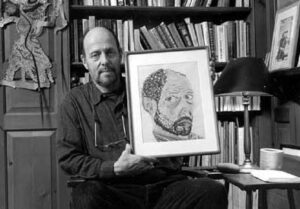Since its inception in 1953, the Oral History Center of the Bancroft Library at UC Berkeley has been responsible for compiling one of the largest and most widely-used oral history collections in the country. And standing among this elusive list of interviewees is an equally impressive class of scholars. As a research unit based at UC Berkeley, the Oral History Center gained rare access to the academy and ultimately built one the richest oral history collections on high education and intellectual history. Interviews with Nobel Laureates, university presidents, leading scientists, and pioneering faculty of color fill this collection. Thus, we saw a project on the famed Yale political scientist, James C. Scott, and his equally renowned Agrarian Studies Program, as an obvious and fitting addition. We are pleased to announce the release of Part 1 of the Yale Agrarian Studies Oral History Project – James C. Scott: Agrarian Studies and Over 50 Years of Pioneering Work in the Social Sciences.

For many students and scholars, James C. Scott needs no introduction. He is the Sterling Professor of Political Science at Yale University, with appointments in the Department of Anthropology and School of Forestry and Environmental Studies. He is the author of over 9 books, most of which are not only widely read across the disciplines of the humanities and social sciences, but considered foundational works in those disciplines. To be sure, the impact of Scott’s scholarship is immeasurable. Over the decades, his books became a series of major interventions, shaping dozens of discourses and research agendas throughout the academy. “Brilliant” became an adjective used by readers with no sense of hyperbole. In recognition of his contributions, he was recently awarded the 2020 Albert O. Hirschman Prize, the Social Science Research Council’s highest honor.
In these interviews, he discusses his childhood in New Jersey and the Quaker school that played a large role in shaping the scholar known for marching to his own drummer. He discusses his experience with the National Student Association, the interesting turn his studies took upon entry to Yale Graduate School, and the string of books he produced in the decades that followed. These include The Moral Economy of the Peasant: Rebellion and Subsistence in Southeast Asia; Weapons of the Weak: Everyday Forms of Peasant Resistance; Domination and the Arts of Resistance: Hidden Transcripts; Seeing Like a State: How Certain Schemes to Improve the Human Condition Have Failed; The Art of Not Being Governed: An Anarchist History of Upland Southeast Asia; and Against The Grain: A Deep History of the Earliest States, among other works. He also recounts the founding of the Agrarian Studies Program, an interdisciplinary flagship in the humanities and social sciences now celebrating thirty years of operation at Yale University.
Part 2 of this project features shorter interviews with nearly 20 affiliates of the Agrarian Studies Program. In this segment of the project, scholars on both the East and West Coasts discuss Jim Scott and the Program’s impact on what is now three generations of scholarship. Part 2 of the Yale Agrarian Studies Oral History Project will be released in early Spring 2021. Segments of these interviews are featured in the video below. Stay Tuned!